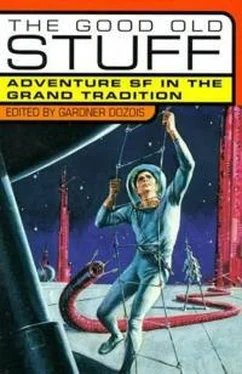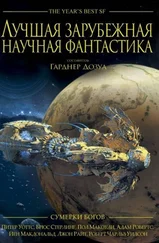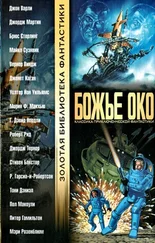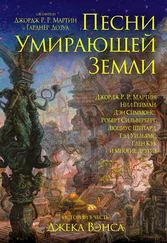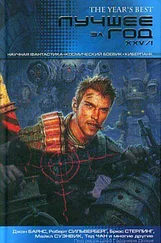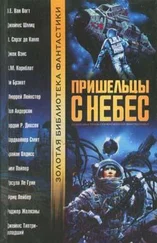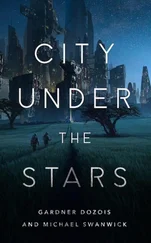Гарднер Дозуа - The Good Old Stuff
Здесь есть возможность читать онлайн «Гарднер Дозуа - The Good Old Stuff» весь текст электронной книги совершенно бесплатно (целиком полную версию без сокращений). В некоторых случаях можно слушать аудио, скачать через торрент в формате fb2 и присутствует краткое содержание. Год выпуска: 1998, ISBN: 1998, Издательство: St. Martin's Griffin, Жанр: Фантастика и фэнтези, на английском языке. Описание произведения, (предисловие) а так же отзывы посетителей доступны на портале библиотеки ЛибКат.
- Название:The Good Old Stuff
- Автор:
- Издательство:St. Martin's Griffin
- Жанр:
- Год:1998
- ISBN:0-312-19275-4
- Рейтинг книги:3 / 5. Голосов: 1
-
Избранное:Добавить в избранное
- Отзывы:
-
Ваша оценка:
- 60
- 1
- 2
- 3
- 4
- 5
The Good Old Stuff: краткое содержание, описание и аннотация
Предлагаем к чтению аннотацию, описание, краткое содержание или предисловие (зависит от того, что написал сам автор книги «The Good Old Stuff»). Если вы не нашли необходимую информацию о книге — напишите в комментариях, мы постараемся отыскать её.
The Good Old Stuff — читать онлайн бесплатно полную книгу (весь текст) целиком
Ниже представлен текст книги, разбитый по страницам. Система сохранения места последней прочитанной страницы, позволяет с удобством читать онлайн бесплатно книгу «The Good Old Stuff», без необходимости каждый раз заново искать на чём Вы остановились. Поставьте закладку, и сможете в любой момент перейти на страницу, на которой закончили чтение.
Интервал:
Закладка:
“Ah. One of those who bounds and measures our country to take it from us?”
“No such thing at all. We only wish ...”
“No arguments. I think I will take you to God. Perhaps you can add to our store of the magical knowledge of the Earthmen. For instance, what are these?” Mishinatven indicated the rubbish left by Quinlan.
“That is a thing for talking over distances. I fear it’s broken beyond repair. And that’s a device for telling direction, also broken.
That—” (Mishi-natven had pointed to the radar-target, an aluminum structure something like a kite and something like a street-sign) “is—uh—a kind of totem-pole we were bringing to set up on Mount Ertma.”
“Why? That is my territory.”
“So that by looking at it from Bembom with our radar—you know what radar is?”
“Certainly; a magic eye for seeing through fog. Go on.”
“So you see, old fellow, by looking at this object with the radar from Be-mbom we could tell just how far and in what direction Mount Ertma was, and use this information in our maps.”
Mishinatven was silent, then said: “This is too complicated for me. We must consider the deaths of my two subjects against the fact that they were head-hunting, which God has forbidden. Only God can settle this question.”‘ He turned to the others. Gather up these things and bring them to Amnairad for salvage.” He wrenched out the arrow that had pierced Frome’s ear and cut the Earthman’s bonds with a short hooked sword like an oversized linoleum-knife. “Clamber to my back and hold on.”
Although Frome had ridden zebras over rough country (the Viagens In-terplanetarias having found a special strain of Gravy’s zebra, the big one with narrow stripes on the rump, best for travel on Vishnu where mechanical transport was impractical) he hadn ever experienced anything like this wild bareback ride. At least he was still alive, and hoped to learn who “God” was. Although Mishinatven had used the term gimoa-brtsqun, “supreme spirit,” the religion of the Dzlieri was demonology and magic of a low order, without even a centaur-shaped creator-god to head its pantheon. Or, he thought uneasily, by “taking him to God” did they simply mean putting him to death in some formal and complicated manner?
Well, even if the survey was washed up for the time being, perhaps he could learn something about the missing missionary and the trader. He had come out with Hayataka, the chief surveyor, and Pete Quinlan, a new man with little background and less manners. He and Quinlan had gotten on each other’s nerves, though Frome had tried to keep things smooth.
Hay-ataka, despite his technical skill and experience, was too mild and patient a little man to keep such an unruly subordinate as Quinlan in line.
First the Dzlieri guide had run off, and Quinlan had begun making homesick noises. Hayataka and Frome, however, had agreed to try for Mount Ertma by travelling on a magnetic bearing, though cross-country travel on this steaming soup kettle of a planet with its dense jungle and almost constant rain was far from pleasant.
They had heard of the vanished Earthfolk yesterday when Quinlan had raised Comandante Silva himself on the radio: “... and when you get into the Dzlieri country, look for traces of Sirat Mongkut and Elena MillSn.
Sirat Mongkut is an entrepreneur dealing mainly in scrap-metals with the Dzlieri, and has not been heard of for a Vishnuvan year. Elena MillSn is a Cosmotheist missionary who has not been heard of in six weeks. If they’re in trouble, try to help them and get word to us ...”
After signing off, Quinlan had said: “Ain’t that a hell of a thing, now? As if the climate and bugs and natives wasn’t enough, it’s hunting a couple of fools we are. What was that first name? It don’t sound like any Earthly name I ever heard.”
Hayataka answered: “Sirat Mongkut. He’s a Thai—what you would call a Siamese.”
Quinlan laughed loudly. “You mean a pair of twins joined together?”
Then this morning a party of Dzlieri, following the forbidden old custom of hunting heads, had rushed the camp. They had sent a javelin through both Hayataka’s calves and mortally wounded the two zebras before Frome had knocked over two and scattered the rest with the light machine-gun.
Quinlan, however, had panicked and run. Frome, trying to be fairminded, couldn’t blame the lad too much; he’d panicked on his first trail-trip himself. But when Quinlan had slunk back, Frome, furious, had promised him a damning entry in his fitness report. Then they had bound Hayataka’s wounds and let the chief surveyor put himself out with a trance-pill while they got ready to retreat to Bembom.
Quinlan must have brooded over his blighted career, slugged Frome, and left him for the Dzlieri, while he hauled his unconscious supervisor back to Bembom.
After a couple of hours of cross-country gallop, the party taking Frome to Amnairad began to use roads. Presently they passed patches of clearings where the Dzlieri raised the pushball-sized lettuce-like plants they ate.
Then they entered a “town,” which to human eyes looked more like a series of corrals with stables attached. This was Amnairad. Beyond loomed Mount Ertma, its top hidden in the clouds. Frome was surprised to see a half-dozen zebras in one of the enclosures; that meant men.
At the center of this area they approached a group of “buildings”—inclosed structures made of poles with sheets of matting stretched between them. Up to the biggest structure the Cavalcade cantered. At the entrance a pair of Dzlieri, imposing in helmets, spears, and shields, blocked the way.
“Tell God we have something for him,” said Mishinatven.
One of the guards went into the structure and presently came out again.
“Go on in,” he said. “Only you and your two officers, Mishinatven.
And the Earthman.”
As they trotted through the maze of passages, Frome heard the rain on the matting overhead. He noted that the appointments of this odd place seemed more civilized than one would expect of Dzlieri, who, though clever in some ways, seemed too impulsive and quarrelsome to benefit from civilizing influences. They arrived in a room hung with drapes, of native textiles and decorated with groups of crossed Dzlieri weapons: bows, spears and the like.
“Get off,” said Mishinatven. “God, this is an Earthman named Frome we found in the woods. Frome, this is God.”
Frome watched Mishinatven to see whether to prostrate himself on the pounded-clay floor or what. But as the Dzlieri took the sight of his deity quite casually, Frome turned to the short, burly man with the flat Mongoloid face, wearing a pistol and sitting in an old leather armchair of plainly human make.
Frome nodded, saying: “Delighted to meet you, God old thing. Did your name used to be—uh—Sirat Mongkut before your deification?”
The man smiled faintly, nodded, and turned his attention to the three Dzlieri, who were all trying to tell the story of finding Frome and shouting each other down.
Sirat Mongkut straightened up and drew from his pocket a small object hung round his neck by a cord: a brass tube about the size and shape of a cigarette. He placed one end of this in his mouth and blew into it, his yellow face turning pink with effort. Although Frome heard no sound, the Dzlieri instantly fell silent. Sirat put the thing back in his pocket, the cord still showing, and said in Portuguese: “Tell us how you got into that peculiar predicament, Senhor Frome.”
Unable to think of any lie that would serve better than simple truth, Frome told Sirat of his quarrel with Quinlan and its sequel.
“Dear, dear,” said Sirat. “One would almost think you two were a pair of my Dzlieri. I am aware, however, that such antipathies arise among Earthmen, especially when a few of them are confined to enforced propinquity for a considerable period. What would your procedure be if I released you?”
Читать дальшеИнтервал:
Закладка:
Похожие книги на «The Good Old Stuff»
Представляем Вашему вниманию похожие книги на «The Good Old Stuff» списком для выбора. Мы отобрали схожую по названию и смыслу литературу в надежде предоставить читателям больше вариантов отыскать новые, интересные, ещё непрочитанные произведения.
Обсуждение, отзывы о книге «The Good Old Stuff» и просто собственные мнения читателей. Оставьте ваши комментарии, напишите, что Вы думаете о произведении, его смысле или главных героях. Укажите что конкретно понравилось, а что нет, и почему Вы так считаете.
